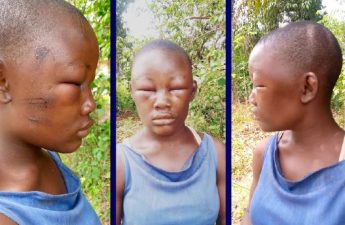This is Christmas. And, despite being in the middle of COVID-19 pandemic, it is still a time to celebrate. And many lovers, in the process of celebrating engage in romantic acts, one of which is kissing.
Kissing is one of the most universal signs of affection which exists in nearly every culture. The act of kissing can range from a quick peck to a long, intimate smooch. But unknown to many, an intimate 10-second kiss can transfer over 80 million bacteria.
Unfortunately, no one is exempt from the disease-spreading dangers of kissing leading to these five diseases below.
- MONONUCLEOSIS
MONONUCLEOSIS is usually caused by the Epstein-Barr virus (EBV), spreads through saliva and is often referred to as “mono” or “the kissing disease.” Symptoms are very similar to those of the flu and include a fever, sore throat, fatigue, muscle weakness and swollen lymph glands.
The infection and related symptoms usually last anywhere from one to two months. Young people between the ages of 15 and 30 and those who regularly come into contact with a lot of people are the most at risk. While no treatment for mononucleosis exists, resting, staying hydrated and taking over-the-counter pain medications often help.
2. CYTOMEGALOVIRUS
Cytomegalovirus (CMV) is a virus in the herpes family. This disease spreads through saliva, as well as through blood, urine, semen and breast milk. Like all herpes viruses, CMV can remain dormant in the body for long periods of time, especially if you’re healthy.
Though this virus can infect almost anyone, symptoms usually appear in those with compromised immune systems. Symptoms can include fatigue, fever, muscle aches and, in more serious cases, pneumonia, encephalitis, seizures and visual impairment. While there’s no cure for CMV, treatment for the virus generally isn’t needed in healthy children and adults.
3. GUM DISEASE
Bacteria, mucus and other particles constantly live in our mouths and can build up to form plaque. Brushing and flossing helps get rid of plaque, though if not cleaned thoroughly, plaque can build up under the gum line and cause gum disease.
Though gum disease (also known as periodontitis and gingivitis) does not spread through kissing, the bad bacteria that cause it can. Brushing and flossing your teeth regularly is your best defense.
4. HERPES
Oral herpes is most commonly referred to as “cold sores” or “fever blisters.” It’s transmitted through direct contact between an infected area and broken skin or a mucous membrane. More than 50 percent of the U.S. adult population has oral herpes, but symptoms aren’t always visible.
Unfortunately, once you contract the virus, it stays with you forever. Additionally, oral herpes, caused by the herpes simplex type 1 strain, can cause genital herpes. Experts estimate that over 20 percent of new genital herpes cases are caused by herpes simplex type 1 transmitted through oral sex.
Outbreaks of oral herpes, however, are usually few and far between. During an outbreak, symptoms usually last between 8-10 days on average and the cold sores heal on their own.
5. MENINGITIS
Many types of viruses can cause viral meningitis, which is serious but less severe than bacterial meningitis. This disease can be spread from one person to another via respiratory secretions.
Symptoms include fever, headache, stiff neck, nausea and vomiting. Though there are no medications for viral meningitis, people with healthy immune systems usually get better on their own.



